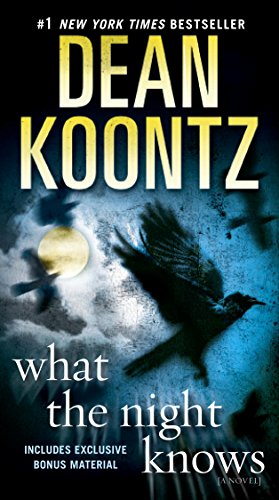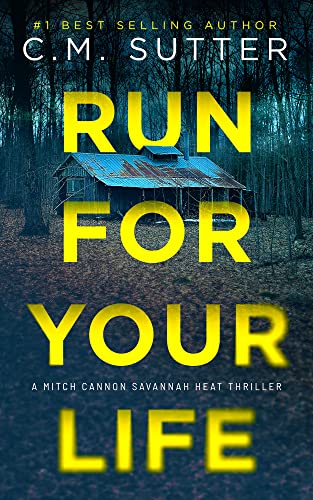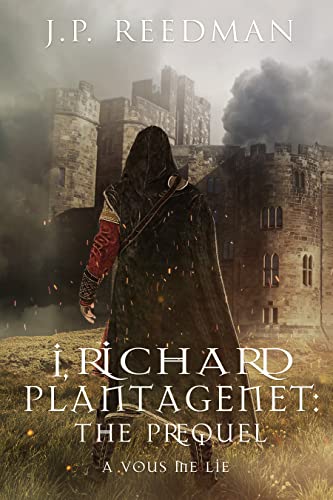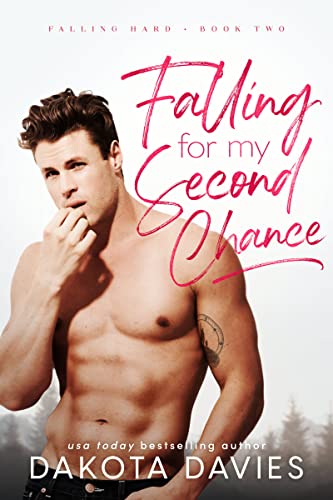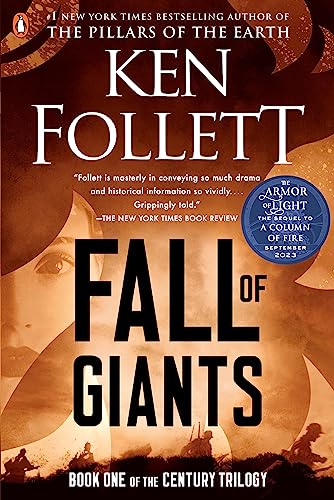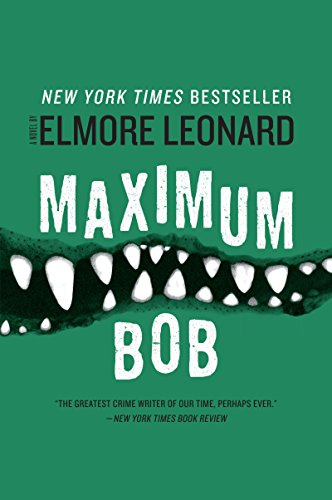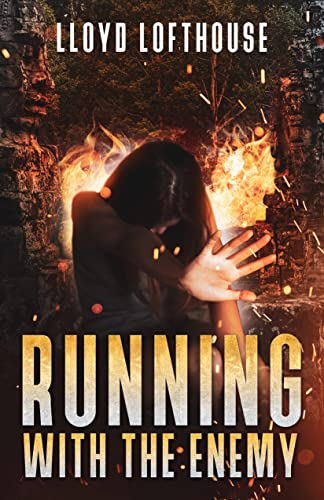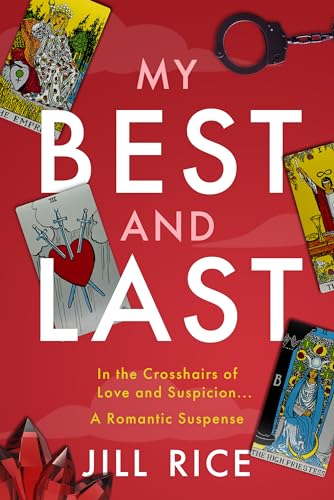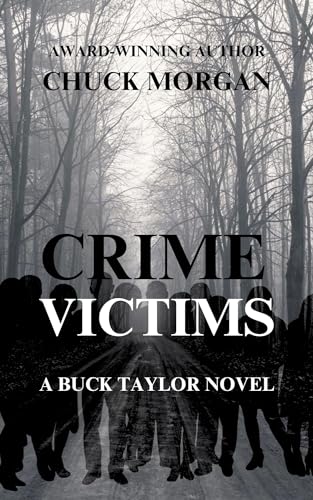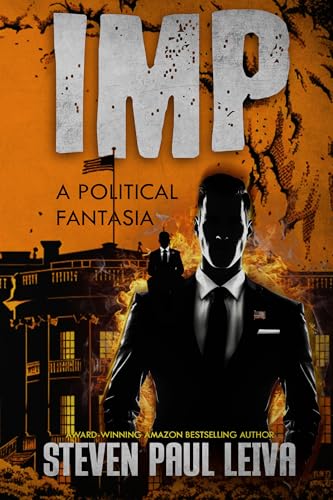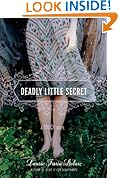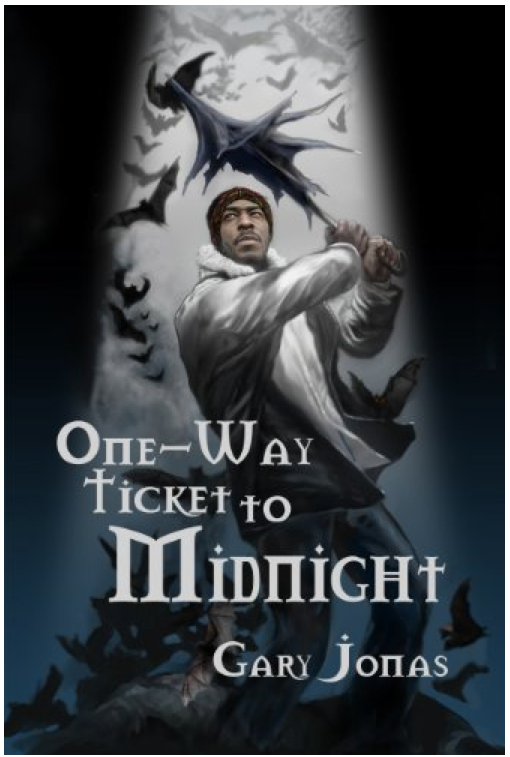The Saints Go Dying, by Erik Hanberg:
by Erik Hanberg
4.5 stars – 12 Reviews
Here’s the set-up:
Arthur Beautyman, a computer hacker turned detective, is hunting a serial killer targeting modern day saints. Against him is an unscrupulous reality TV show and a member of his own department, who doesn’t know the hacker she’s tailing is in the office next door. It’s a deadly cat-and-mouse game set against the lights of Hollywood.
The author hopes you will enjoy this generous, free excerpt:
Chapter 1
Chapter 1
Only on TV do people get to look good at three in the morning, Arthur Beautyman thought. He dragged himself out of his car and into the Santa Monica police station, feeling like his soul was on strike, his body left to fend for itself.
One look at the bags under the eyes of the desk sergeant inside the door and Beautyman wondered if anyone ever really got used to being up at this hour. He flashed the sergeant his detective’s badge. “I’m here to see the suspect you’re holding in the Babylon murders.”
The sergeant looked at the badge and the ID photo next to it, and back to Beautyman’s face. He lingered on Beautyman’s features for a moment and checked again. Have I really changed that much? Beautyman took the opportunity to look at his own photo. It was more than the weight loss. The light pockmarks scars from his teenage acne looked deeper now against his tightened cheeks. The photo also showed no sign of the gray strands that had invaded his dark brown hair.
His green eyes were the same; other than that Beautyman was starting to feel like he was walking in another man’s skin. He closed the leather over his badge and looked back up at the desk sergeant. “You were here when they brought the suspect in?” Beautyman asked.
The sergeant nodded, reaching for the phone.
“Why was he picked up?”
“A tipster called the Watchdog hotline. We followed up and apprehended the suspect in a parking lot off the Pacific Coast Highway. He matched the description, so we put him in an interrogation room and gave him a bottle of water, just as you asked.”
The sergeant dialed the phone and left Beautyman brooding. If he’d known this had been a tip from Watchdog, he might have stayed in bed. Beautyman hated the weekly show.
Watchdog had taken the basic premise of documentary justice shows like Unsolved Mysteries and American Justice but with a new twist. Its central premise was that cops were crooked, incompetent, and possibly as bad as the criminals themselves. The show existed to expose the police’s bumbling efforts to solve crimes, when they weren’t actively covering them up, and bring the weight of public opinion down on them. It masqueraded as a public watchdog-hence its title-seeking to reform all L.A.-area law enforcement through the “light of public scrutiny.”
Had the show’s recklessness stopped there, Beautyman might have been able to tolerate it. But they started advertising their tip line as “the number to call when you just can’t trust the police.” Since the show became a hit, Beautyman knew he was not the only detective in L.A. who had run into witnesses who remained tight-lipped during questioning and declared that they would only talk to Watchdog.
The sergeant hung up the phone and said, “They’re in the back.”
Beautyman nodded. He felt the early hour creeping back over him as he waited for the buzzer that signaled he could get into the back offices of the station. He had already given up hoping that the man in custody would be a possible suspect, let alone the killer himself. In the last month alone the Sheriff’s Department and the municipal police departments had collectively fielded hundreds of tips about the Babylon murders. They never led to the man he was looking for.
A detective and a uniformed officer were waiting for him when he came through the glass door. The young officer asked, “Any chance this might be the guy?”
Beautyman looked past the young man, staring off into space. On a good day and wearing boots, Beautyman was all of 5’6″. The officer next to him had at least eight inches on Beautyman, which gave him the option of either craning his neck to see him or-Beautyman’s preferred option in these situations-looking pensive and thoughtful. He put on his best grave and serious face. “Routine police work is always bound to turn something up eventually. Does he match the description?”
“He looks like the guy on TV,” the officer said, shrugging a bit.
“Well, that’s a good start then,” Beautyman said, meeting his eye solidly this time. Calls to Watchdog had increased substantially once the show started staging reenactments of the Babylon murders. In Beautyman’s opinion, it just got them more suspects who looked like the actor on the show, not the killer. But he held his tongue in front of the young officer.
“Can I get a bottle of water for myself before I go in?” The officer ran to get one and Beautyman turned to Sam Reynolds, a Santa Monica detective Beautyman had met a few times before. “Is there a file?”
There was. Beautyman glanced through it. It contained the transcript of the call to Watchdog and the report of the officer who apprehended the suspect in the parking lot. “Is this guy even likely to be our Babylon killer, Sam?” Beautyman asked, not looking up from the file.
“About as likely as my chances were of getting laid by Farrah Fawcett in high school.”
“Swell.”
“I think you’ll have to chalk this up as another bad reason to get out of bed at 3 am.”
“I didn’t need another.” Beautyman put the file down on the desk. “By the way, your man at the desk … has he had his training yet?”
Reynolds shook his head. “The Chief didn’t want to spend the money for something as stupid as media training, but I’ll bet tonight’s going to change his mind.”
Most of the L.A. area police and sheriff departments were mandating media training classes. In a surprisingly insightful move, the lowest ranking officers were enrolled first as they were the most likely candidates for Watchdog to target for gotcha-style interviews.
The young officer returned with a plastic bottle of water that felt like it had been stored on top of a radiator.
“Was that your arrest report, Officer?” Beautyman asked, unscrewing the bottle despite its warmth.
“Yes, sir.”
“And he didn’t try to run at all? No sign of attempting to flee.”
“No sir. He was about the easiest collar I’ve ever had. Just said you’d get a laugh out of it when you got here.”
Beautyman looked up from the report sharply. “He knew me? Did he say my name?”
“He called you Beautyman, except he pronounced it Beauty Man, like you were a superhero or something.”
Beautyman put the water back on the desk. “That should have been in the fucking report, Officer. Fuck! Sam, open that door for me.”
Reynolds went across the room with Beautyman on his heels and typed in a code on a keypad next to the Interrogation Room door. Beautyman threw the door open and saw the suspect kicked back in his chair, legs up on the desk, arms behind his head, grinning like a devil at Beautyman.
“Evening, Arthur. Or is it morning already?”
Beautyman turned and whistled to the young officer behind him. “You! Officer! You see this man?”
“Yes, sir,” the young man said. He dwarfed Beautyman, but you wouldn’t know it now; Beautyman’s wrath had him cowering.
“If you’re going to watch a shit program like Watchdog, then make sure that you watch it more closely,” Beautyman spat. “This guy looks like the guy in the reenactments because he is the guy. You arrested the fucking actor.”
Chapter 2
On his way out of the station, Beautyman extended his hand to the young officer he had cursed at earlier. “I had no right to swear at you earlier this evening. I apologize for my language and my tone. You certainly didn’t deserve it.”
The officer nodded and mumbled dumbly. He was obviously embarrassed by such frank talk combined with physical contact-even a handshake can feel bizarrely intimate if timed well. Which, of course, was part of the reason Beautyman had extended his hand and patted his elbow. It was true that he felt bad for reprimanding the officer in front of the suspect he had just arrested, but that wasn’t why he said what he did. Experience had taught Beautyman that a little embarrassment caused by an honest apology would be helpful to him if he never needed anything from the young man.
It certainly wouldn’t work for most people in law enforcement, whose personalities seemed fundamentally different from Beautyman’s, but his demeanor was in many ways successful precisely because it was so different from his colleagues’.
“Are you going to buy me breakfast for my troubles, Arthur?” Gregory Raphael asked as he got into the passenger seat of Beautyman’s car. Raphael, even after an arrest and a couple hours waiting at the police station, still managed to look like a movie star. As far as Beautyman knew, Raphael was still a long way from the red carpet appearances, but he was incredibly handsome, a radiant golden boy, which meant he was probably going to be parading on the red carpet eventually.
“I’m just ferrying you back to your car, Mr. Raphael. I don’t want it getting round to Watchdog that we arrested one of their employees.”
“Was I actually arrested? That’s kind of exciting.”
“Sorry. Temporarily detained.” Beautyman pulled his car around and faced the street. “Which way to your car?”
“Venice, parked in front of my house. I was walking home along the beach when they nabbed me in that parking lot.”
Beautyman turned right and started heading south along the dark coast. “If I may be so bold, why didn’t you just tell the officer who you were?”
“It’s silly, but I wanted the experience … for my work. To see what it would feel like to be tossed in the slammer. I thought there might be some material there.”
“And was there?”
“Not really. It wasn’t all that scary because I knew I’d be seeing your face soon and that it would get cleared up.”
Beautyman didn’t say anything. He was wondering how much more sleep he would have gotten if he hadn’t been called out because an actor wanted the cheap thrill of a prison visit. Probably not much, unfortunately.
“Besides, the cop wasn’t going to listen to me. This whole city is wound tight because of the murders. You know that when that kid got word of the tip, he saw the same headlines all of you do. Hero Cop Saves City. Or Hero Cop Guns Down Babylon Killer. He had an itchy trigger finger in the parking lot. He was scared and there was no reason for me to test him.”
That assessment of the state of affairs, Beautyman thought, was pretty accurate. The city was on edge and the cops wanted to be heroes, if only to shove it in the faces of Watchdog.
They drove in silence until Beautyman reached Venice when Raphael started giving directions. They pulled up in front of his home just as the sky was discovering dawn. “Here you go, Mr. Raphael.” His passenger got out of the car. Behind him, Beautyman saw a slim woman emerge from the front door of the small two-story house. She was crossing her arms and looking like she’d had as little sleep as Beautyman. He couldn’t help noticing her figure and her light blonde hair. The Golden Boy had a Golden Wife. Figured. Los Angeles was a terrible place to be average.
Raphael shrugged his shoulders at his wife, as if he were going to explain everything to her soon, before bending down and looked through the open car door. The Pacific was warming to dawn and the morning light was just starting to shine on Raphael. It looked like he was backlit, Beautyman thought. Like wherever he went he was always in his own damn movie.
“You have permission to call me Greg, you know,” Raphael said, flashing his perfect teeth at Beautyman.
“Unless you join the force, you’ll always be Mr. Raphael to me. Just how I think of people, I guess,” Beautyman answered.
“I understand that. But I figured since we were colleagues now you might be willing to relax a bit.”
“Colleagues?” Beautyman echoed, even though he knew what Raphael meant. He was just pissed the actor knew already.
“Well we’re all going after the same guy, right? And now we’re on the same team. Sandy told me you were coming on board tomorrow to start filming.”
Sandy Ewson, the scumbag producer of Watchdog. Beautyman wasn’t sure his avowed humility should extend as far as a man like Sandy Ewson. Beautyman was pretty sure he was a better man than Sandy Ewson would ever be.
“I guess it’s an interview tomorrow morning. And then at some point they’ll call me in for a day of shooting the reenactments.”
“I’m looking forward to working with you. We’ll make a great onscreen duo! I’m Anthony Hopkins and you’re Jodie Foster!” Raphael laughed.
Beautyman didn’t know what to say to that. He put the car into drive and indicated the woman at the door. “Please pass my apologies along to your wife.”
“I will. And study up as best as you can before your interview, Detective Beautyman. They’re going to try to nail your ass to the back wall for the Babylon investigation. Good luck.”
Chapter 3
Beautyman took Raphael’s advice to heart. He left Venice and went straight to the station. By the time Watt stopped by his office, he’d been hunched over the files for two hours.
“Anything last night?” Watt asked, leaning his long body through the doorway while leaving his feet firmly on the other side of it. Not willing to commit if the news was bad, Beautyman guessed.
“They arrested the actor. The guy who plays the Babylon killer on Watchdog.”
“Christ, that’s an embarrassment.”
“Bad luck,” Beautyman said. “You know how it will play. Like a late night comedy sketch. Hollywood cops can’t catch killers, but we can find the actors who play them … It’ll makes a good joke for Leno.” Beautyman tapped his pen on the edge of the desk and tried to gauge Watt’s response. The young cop had served Beautyman for three years and in that time, Beautyman had only seen him lose his cool once.
Watt just nodded. “What’s next then?”
Beautyman wondered if he heard a note of despair in Watt’s voice. The two of them were permanently on edge; a new victim could be found any day, and with no new leads they were left in the uncomfortable position of just waiting for the next death.
“I’ll need your help for this damned interview tomorrow.”
Watt nodded again. “And for the case?”
“I’m not sure.” Beautyman checked his watch. “Want to join me for the daily briefing?”
Beautyman met daily with a representative from the FBI’s Behavioral Science Unit. They were called “profilers” in the movies. On film, they would look at a crime scene and tell you, “He’s in love with his mother,” or “He wishes he could be a woman” or some other character profile based on some telling detail at the crime scene. On film, these were the guys who would swoop in and claim jurisdiction and take over an investigation from local law enforcement.
But in Beautyman’s experience all they did was sit across a table and pass reports to him. They passed him reams of spiral-bound paper that he stacked in his office. He tried to read as many as he could, but with only so much time in the day, Beautyman usually only got through the first few pages. Reports with titles like Probability of Physical Defect and Known Relations of Victim 5 and Comprehensive List of Internet Based Printing Companies could only be so engaging.
Beautyman often wished the FBI would swoop in and take the case off his hands. Like today, he thought, heading down the hall to the meeting. Unfortunately the Bureau wanted nothing to do with the Babylon case and were much more interested in covering their collective asses by generating reams and reams of reports. Any report Beautyman asked for, he got. But they were in a “supporting role,” and had been since they first showed up to help.
“Good morning, Agent Chow,” he said, shaking the hand of his FBI contact. Beautyman sat down at the round conference table and waited for time to stand still, as it inevitably did whenever he started a conversation with Chow. The man was so cautious about committing to anything that he pieced his sentences together as slowly as if he were hunting and pecking for them on a keyboard.
“The Bureau has some … more information for you today. Most pressing … is the … ”
“Excuse me for interrupting, Agent Chow,” started Beautyman. “I mean no offense by it. But I have some pressing concerns I need to address. After last week’s Watchdog exposé, the Sheriff has decided that since we can’t beat them, we should join them. They’ll be interviewing me for the show tomorrow and later we’ll be shooting those awful reenactments. Sandy Ewson over there wants me to play myself. He says it will add ‘verisimilitude,’ but I think he just wants to screw with me. Sheriff wants me to agree to pretty much anything at this point.
“So I’m supposed to start playing ball with them and hope that gets them off our backs a bit. But I have it from a reliable source that I’m going to be ambushed. Not that I needed a tip, I suppose, to figure that out. I would have to be pretty stupid to go in there and not expect to be blindsided. What I’m mostly worried about is what they’re going to nail me on, and I’ve got a hunch they know something they haven’t told us yet. Something they won’t spring on me until the interview.”
“And you want to know … if we can … get it out of them,” finished Chow.
“If possible, yes. But I’ve got-” he checked his watch, “23 hours until I’m on set, and I want to know what they’re sitting on. Did they get a tip? Did a witness come forward? Did we, God forbid, miss something that one of their detectives stumbled across?”
“We’ll see what we can … pull out of them,” Chow said finally. “I can’t promise much … but a records request from the Bureau might … get us an idea of what they’re holding back.”
“Thank you. Preparing for this interview is my top priority. Watt will assist me in a thorough review of every pertinent fact in this case. I don’t want to stumble over a single thing. Please let me know if you learn anything. Regarding your reports, let’s tackle those as soon as I get this behind me.”
Beautyman left the meeting, momentarily elated that he’d cut a traditionally tedious meeting down to just a few minutes. The path back to his office took him by the white-collar crime unit, and Beautyman heard his name shouted as he passed a doorway.
He stopped. Jackie Fleet was smiling at him from behind a stack of papers. He’d noticed her before. How could he not-she was 38, only two years younger than he was, and she was still single. That was enough to get his attention, but she was also pretty cute-as cute as a cop was allowed to be-and she was full of energy. Her blonde hair was almost always tied back in a short ponytail that bobbed when she spoke with excitement, which was often. She might come off as a Valley Girl, but she had shown a brilliance in her investigations that had put some downtown bigwigs behind bars.
“Sorry to bug you, Arthur, I know it’s one of those days for you.” The end of her ponytail bobbed into view and then behind her head again.
“It’s always one of those days. What’s up?”
“I hear you’re a baseball fan, is that right?”
“The biggest.”
She laughed. “I didn’t know there was a competition.”
“You want to talk about the Dodgers?”
“Um … the Pirates, actually.” She checked a piece of paper.
“Really? How come?” Beautyman sat down.
“Does the nickname ‘The Flying Dutchman’ mean anything to you?”
Beautyman felt his neck muscles tense. His morning stretches would be in vain. “Well, there’s the ship obviously. But since you want to talk about the Pirates, I’m guessing you want to talk about Honus Wagner.”
“I’ve been on the track of this hacker who goes by Dutchman. It seemed like such a weird handle, I started researching it. I thought it was a reference to the ghost ship, but I’m starting to wonder if it’s this Wagner guy. What’s up with him? What’s the big deal about some player from a hundred years ago?”
“We still remember Chopin and Monet as great artists long after they died. Wagner’s like that. A great artist, and baseball was his canvas. Maybe one of the best all-around players to ever step onto the diamond, and certainly one of the best shortstops.” Beautyman stopped himself before he went too far.
“Huh. Still seems weird to idolize someone like that.”
“Maybe it’s not that. I mean that’s why I am an admirer, but for some it might be his baseball card, the most expensive card in the world. Someone bought one recently for almost $3 million.”
“For a baseball card! That’s insane.”
“I’m just saying that the baseball card has a certain allure to it. Someone could be obsessed with the card but not care about the player. What kind of case are you looking into?”
Fleet sat back in her chair. “It’s the damnedest thing. A security breach at Maritime Bank of L.A. Something, and we think that something was this Dutchman hacker, triggered their servers to automatically reboot. I don’t know enough to say how he did it, but when he did it, he was the new server admin. He had access to everything. The whole bank was open wide to him. And do you know what he did? Didn’t touch a penny. He just went through the ATM cameras security footage.”
“Seriously?”
“Yeah. Each machine has a camera on it, and it appears he was just scouring the logged footage from three cameras in Hollywood. Tried to patch up the damage but someone at Maritime noticed. Once they figured out what happened they asked us to look into it. I’ve spent the last month working with them to confirm there was no actual theft of dollars. Now we’re just trying to figure out what the point of the whole thing was.”
“How’d you find out it was this Dutchman if he tried to repair the damage?”
“I had help there. We don’t have a cyber crime division, but the tech guy at Maritime Bank figured it out. He-” Just then the phone rang, and Fleet cut herself off. “Excuse me for a moment, Arthur.”
Beautyman waited for her to get off the phone. By the time she was off, he had decided he couldn’t keep asking her about her investigation without looking too eager.
“So it sounds like you could use a baseball primer,” he said, smiling.
“You think it would help?”
“I’ve got season tickets to the Dodgers, and they’re playing tonight. Babylon’s been taking over my life. This might be just the excuse I need to get to the ballpark.”
Fleet cocked her head to the side and appraised him, as if for the first time. If she agreed, it wasn’t going to be because of his looks, Beautyman thought.
“What time does the game start?”
“7:05. My day’s going to be devoted to getting ready for this interview tomorrow, so if you’re up for just leaving from the station, that would be best for me.”
Beautyman tried to put Fleet and her search for the Dutchman out of his mind. This was a complication he didn’t need. The game was going to seriously eat into his valuable time, but Beautyman didn’t feel like he had a choice. Fleet probably thought he wanted to get into her pants, but really he just wanted to learn more about her investigation.
He sipped his coffee and stared at the map of L.A. in front of him. Red pins represented the locations the Babylon bodies had been found. Blue pins represented the victim’s homes. That meant 14 pins for just the victims. The map was starting to get so crowded with pins, Beautyman was ready to stop using it altogether.
Watt walked in and slumped into a chair.
“What’s Watchdog’s first question, Watt? Do they start with the first victim? The killer? Our arrest of their lead actor?”
“They start at the beginning. Victim number one.”
“Ok, Rachel Madison is as good a place as any to start. Let’s go through it again.”
Rachel Madison was found a full 14 months ago. She was discovered on a Malibu beach, spread like a snow angel into the wet sand. Found nude, it didn’t take much to realize her entire body had been shaved. Worse yet, her bone white skin and the small puncture wounds in her wrists led to wild headlines about a Malibu Vampire stalking the beaches.
The coroner reported her blood had indeed been drained, but it hadn’t been sucked. She had been knocked out and then the blood had been drained from her through a crude IV inserted into each wrist.
And that’s what had killed her. She’d bled to death. She’d been drugged and while she was under, her killer had bled her dry. She wouldn’t even have wakened up.
With no grisly murder for the press to write about, the Malibu Vampire story faded away. A few were able to keep the vampirism stories going by speculating about what the killer had done with all the blood he’d taken from her. But without tell-tale fang marks on her neck, there wasn’t much to that angle anymore.
The Los Angeles County Sheriff Department never found a lead or identified a suspect, either, which meant that the remaining stories were about the bumbling police and no longer focused on the 23-year-old victim.
A graduate of Scripps College and a social worker who counseled victims of domestic violence, it was hard to imagine why such a senseless crime happened to such a caring person. She left her small apartment each weekend so that she could go to church with her parents at their family parish. Her boyfriend, who by all accounts was just as morally upstanding as she was, told the Channel 7 nightly news that she was waiting to get married before having sex. Her virginity was-tastelessly, Beautyman thought-confirmed by the coroner. So why kill Rachel Madison? And why take her blood and her hair?
Two months after Rachel Madison was found on the beach, the Los Angeles police found Miguel de la Iglesia naked, shaved, and drained of blood in a small L.A. apartment. This time, the body was accompanied by a small card, left on the end table by the couch, his final resting place. In small black lettering, centered on the thick white card stock was written:
I am drunk with the blood of saints
and I drink the blood of these martyrs of Jesus
It was the size of a calling card. The pure white card stock and the dark black Helvetica typeface that carried this awful message chilled Beautyman to the core.
No one doubted that they were looking for a serial killer. But like so many serial killers, this one wasn’t respecting jurisdiction. Rachel Madison was found in Malibu, the L.A. County Sheriff’s turf; Miguel de la Iglesia in Los Angeles proper, covered by the LAPD.
Within hours of finding the body, the FBI was making calls across the region and let it be known that any sign of bureaucratic squabbling was going to be met with severe consequences. The many departments were going to work as one on this case, with the full weight of the FBI behind the new coalition.
But they needed a leader. And as the first victim fell under the jurisdiction of the L.A. County Sheriff, they were anointed as primary investigators. With every law enforcement agency between San Diego and Reno pledging fealty, the Sheriff knew that he would be sharing any successes but none of the failures. If there were any single reason Barry Upright had been elected Sheriff three terms running-besides his laughably electable name-it was because he had scrupulously avoided these kinds of situations.
With no good options, Upright assigned Beautyman to take charge of the manhunt and gave him a deadline. “If this piece-of-shit vampire bloodsucker isn’t caught in two weeks, I’m going to tie you to a stake at the next full moon so he can come out and take your blood.”
“I believe you’re thinking of werewolves, sir,” Beautyman said.
“I don’t care if he’s the creature from the Black Lagoon. You’ve got two weeks.”
But that was twelve months and five victims ago.
Sometimes Beautyman caught himself hoping the Babylon killer would strike out of state. It was the most likely scenario to get the FBI to take over the investigation and give him a chance to rest. But the killer had stayed strictly local. All seven victims had been found in the L.A. area. Until he started draining the blood of victims in Las Vegas or Phoenix-or until Upright needed to shake things up to keep voters pacified-Beautyman was going to be stuck with the case.
After the body of Miguel de la Iglesia was discovered, it was as if the entire L.A. press corps had found a crusade worthy of their vast resources. Once his name was released, the papers ran endless feature stories about de la Iglesia’s good works, and there were many. A married but infertile man, he and his wife had adopted three daughters from China. During the five years of adoption proceedings, de la Iglesia found he had a knack for Mandarin Chinese. He went to night school to learn it so he could teach it to his daughters and bring them up tri-lingual, English, Chinese, and his native Spanish. Learning Chinese made his law degree that much more lucrative, but rather than join the corporate ranks of a multinational-and many had been calling him-de la Iglesia left his private practice and joined up with Amnesty International’s legal department.
And now he was dead. He looked at the small calling card again, secured in its plastic evidence bag.
The first report he’d requested from the FBI was an analysis of the inscription and its likely meaning.
It should not have surprised him that the card referenced a verse from the Bible, specifically the Book of Revelation. Revelation 17:6 described a vision of the Whore of Babylon, an allegorical figure of supreme evil and the Antichrist. The verse reads, “And I saw the woman drunken with the blood of the saints, and with the blood of the martyrs of Jesus: and when I saw her, I wondered with great admiration.”
But did that mean anything? All crazy people seemed found a passage in the Bible to justify their twisted belief system, Beautyman figured. And turning to the Book of Revelation was an easy place to start.
The FBI apparently agreed with him. The symbolism of the Whore of Babylon had meant different things to different groups throughout the centuries. She represented pagan Rome, Christian Rome, Jerusalem, the Catholic Church, the Catholic Church after Vatican II, the secular world, American hegemony, capitalism … that list went on and on. And she could mean something entirely different to their killer.
What everyone seemed to agree on, though, was that the Whore of Babylon was evil. And this was where the FBI report turned ugly. The Behavioral Analysis Unit had encountered plenty of people over the years who cited the Bible to explain their crimes. But those people generally saw themselves as cleansing the world and trying to make it pure. This killer identified himself with the Whore of Babylon. He could apparently recognize the supreme evil of the allegory and embraced it fully. He wanted to be the Whore of Babylon. He was most likely drinking the blood of his victims, in a horrible mimicry of the Whore of Babylon.
And there you have it, thought Beautyman. The man was killing martyrs of Jesus and drinking their blood. But he hadn’t targeted people who were Christian, or even religious. Rachel Madison was part of a deeply religious family, but the wife of Miguel de la Iglesia reported that he hadn’t been to church on any days other than Christmas and Easter. The man was a saint killer, but apparently there was no religious litmus test. He measured his saints by good works, it seemed. And if by that qualification Madison and de la Iglesia weren’t modern day saints, then no one was.
Two months after Miguel de la Iglesia died, a third victim was found. The same card was found by her naked, shaved, bloodless body. This time the victim was found in an alley in Long Beach, farther from the first two than they had expected. Beautyman was sick to his stomach. Chandra Pal was a kindergarten teacher who was first violin in the Long Beach Symphony Orchestra. The daughter of two immigrants from India, Pal also gave thousands every year to non-profit micro-lending organizations that helped women in India and Africa start their own businesses.
It was after her that the name for the Babylon killer became popularized. Two victims made a line, and three was most definitely a trend. Jay Leno didn’t touch it, of course, but Bill Maher looked at his HBO audience and said, “So there’s a serial killer going around L.A. killing saints-incredible people it would be an honor to meet. He’s killed three so far … which I figure means he’s probably just about finished.”
Two months later, Chandra Pal begat Mary Weber, who had been a nurse in a free clinic for more than 30 years in Anaheim. Mary Weber begat Tim Cathersole, back from two stints in the Peace Corp and staying with his family in Pomona. Tim Cathersole begat Jasmine Davis, a beloved youth group leader who pulled kids off the streets of the worst neighborhoods of L.A. And Jasmine Davis begat Julia Lopez, a high school student who fed the homeless on weekends in Hollywood.
It was hard not to notice that victims were getting less-saint like. Certainly they all sounded like good people, but saints? Beautyman privately wondered if Maher was right; perhaps the killer had run out of people in that category. That didn’t stop the media from holding the victims up on a pedestal, though. They became saints. And that was the scariest part. If any act of kindness or selflessness made you a saint, and being a saint made you a target, how would people react?
While L.A. panicked, for Beautyman it was starting to become almost routine. Victims’ lives would be investigated and overturned. Their last week would be nailed down to the minute, if possible. The hundreds of people who might have been in contact with them were interviewed and sometimes brought in for further questioning.
And the FBI would tell Beautyman that the killer would be getting more confident and begin to kill more quickly. But so far it hadn’t happened. It wasn’t like they were timed to the day. Once there were seven weeks between victims. Once there were nine. But they were not getting more frequent, the killer continued to wait roughly two months between his crimes.
And Julia Lopez had been found in her car in Hollywood just seven weeks ago.
Beautyman tried to focus on what leads they had. He wished there were more. He remembered something about Edison, who after each failed attempt at a light bulb would chalk it up as a success: he now knew yet another way not to build a light bulb. Beautyman didn’t think he could keep such a positive outlook indefinitely, but he did feel like his investigation had been successful at ruling out the leads that took them nowhere.
So where did that leave them?
Practically speaking, the Babylon killer did not appear to have any bizarre fetishes that would make him easier to track. If he had had a penchant for killing his victims with Ming Dynasty vases, finding him would be much easier: just guard all known Ming Dynasty vases until he showed up. But he used no weapon, short of the needle and catheter to draw the blood.
Almost assuredly the victims did not just lie there and let him go about the business of slowly killing them, though. And as they didn’t have marks on their bodies-wait, was that why they were shaved? To prove they hadn’t been touched? Beautyman made a note to look into the idea after his Watchdog interview. The toxicology reports showed they’d been drugged with Propofol, a quick acting anesthetic delivered intravenously.
Not that even that was easy to figure out, Beautyman remembered. The same puncture mark used to deliver the drug was reused for draining the blood. That had thrown them for a few days.
The drug was not readily accessible to the public and Beautyman poured considerable time and resources into understanding and tracking its distribution and availability. It was used for adults and children over three, as well as being a preferred anesthetic for pets. But in a metropolitan region of 12 million people, not more than 100,000 people would have easy access to the drug. Doctors, nurses, and veterinarians in all of Southern California were asked to report any vials or pre-loaded syringes of Propofol gone missing.
The next major lead Beautyman had was the man seen with Chandra Pal just hours before her death. After each murder, dozens of uniformed officers spent days conducting extensive canvassing. Every lead they turned up was eventually explained, every “strange man” or “tall fella” was identified later by a friend or a relative-“That’s right, she told me she was going to meet her boyfriend after work!” Hundreds of hours went into each of these leads. And all were eventually explained. All except the man who visited Chandra Pal’s classroom.
Two witnesses saw him with her. As Beautyman’s luck would have it, one of those witnesses was a kindergarten student of “Ms. Pal,” and the other was his older sister-older, in this case, meaning third grade.
After the students had been dismissed on Ms. Pal’s final day of teaching, one boy discovered he had left his backpack at the school. His mother turned the car around and sent him back into the classroom to get it, accompanied by his older sister. They both saw a stranger with Chandra Pal.
Less than 48 hours after her body was found, Beautyman sat down with the youngest child first. He chose as his interrogation room Pal’s kindergarten classroom, the child’s mother and father sitting together to the side.
“I’m Arthur. What’s your name?”
“Gavin.”
“Gavin, your parents are right here, ok? They’re going to listen to what we talk about. And what’s important, is that you think of me like you think of them. If I ask you a question that you don’t know the answer to, the right thing to do is to tell me you don’t know and not to make something up. So if I ask you what 25 plus 48 minus 3 is, what are you going to tell me?”
Gavin eyed Beautyman like he was still trying to figure out what his angle was. “I don’t know?” It was definitely a question.
“That’s right. But if you do know the answer, you’ll tell me that too, right?”
Gavin nodded.
“Three days ago you left your backpack in the room and your mom turned around and let you out of the car, is that right so far?”
Gavin nodded again.
“But she made your older sister walk you in?”
Gavin’s face seemed to wrinkle a bit at the mention of his sister, or perhaps at the mention that he had to be escorted, but he still nodded.
“Tell me, which door did you come in from?” Beautyman indicated the exterior door and the door that opened in to the school’s hallways.
Gavin pointed toward the door into the hallway. It was a wooden door with a narrow window at the top above Gavin’s head. “That one.”
“Did you open the door when you came back in or was it already open?”
This was the first question that seemed to puzzle Gavin and he thought about it severely. Finally he pronounced, “Melissa opened it.”
“Your sister opened the door? You’re sure?”
He nodded. “She was in front of me.”
“So Melissa opened the door, and did you see Ms. Pal?”
“Yes.”
“Where was she in the room?”
Gavin pointed to her desk.
“And she was in her chair there? Or was she standing?”
“Sitting, but … but on the desk.”
Beautyman’s surprise must have shown through, because Gavin nodded his head vigorously. “Really! She was sitting on the desk.”
Beautyman smiled and nodded. “Good. You’re doing great, Gavin.” Privately he was assessing the likelihood of a kindergarten teacher sitting on a desk with a stranger. It didn’t seem high. “Now, was she alone in the room?”
“No, there was a man too!” Gavin seemed to be warming to the game as he was becoming more animated. Which meant he might be more inclined to stretch a truth, possibly even unknowingly, to keep the fun going. Beautyman paused and looked at Gavin’s parents, whose faces were showing him a curious mixture of sympathy and disgust.
“Was the man a professional football player?” He asked.
Gavin’s face crinkled as he tried to figure that one out. “No,” he finally said, a little confused.
“So he didn’t have on a football uniform?”
“No … ”
“Are you sure?”
“Yes,” Gavin said, although he actually sounded less sure of that answer than any before it. Apparently the game wasn’t as fun for him when Beautyman wasn’t asking easy questions.
Beautyman took pity, but he had stopped a potentially dangerous precedent from forming. “Show me where the man was.”
Gavin got up from the small desk and indicated a counter running along under the windows. “He was leaning against here.”
“Against the counter?”
Gavin nodded.
“Did he see you?”
“He smiled at me and said hi to Melissa.”
“What did Ms. Pal seem like? Was she angry with the man? Or happy to see him? Or scared?”
Gavin shrugged. “I don’t know.”
“That’s a good answer. Did Ms. Pal touch him like a hug or a kiss?”
Gavin shook his head.
“Did you hear Ms. Pal laugh when you were in the classroom?”
Gavin thought about it. “Yes. When I told her I left my bag she laughed and said I did that every week.”
“Did she introduce you?”
“She said he might have a son coming to kindergarten and I would have to show him around.”
“Did she call him a name like Mr. Smith or Mr. Pal?”
Gavin shook his head again. Beautyman finished up with as good of an approximation as he could get of what the man looked like: white and with hair somewhere between blond and brown.
Gavin’s sister Melissa fleshed out the description a bit more when he met with her.
“He wasn’t that big, but he looked really strong, like he worked out a lot. He had a red tie on, and it looked like he had come right from work. He smiled at me and I thought he was really-,” she shot a glance at her parents and then looked back at Beautyman meekly, “really hot. He looked like a Ken doll or Brad Pitt or something. It seemed like Ms. Pal liked having him around.”
At the time, Beautyman felt like things were moving along. Unlike the disjointed efforts after the first two victims, he had led the investigation with an efficiency and comprehensiveness that had produced the first witnesses in the case. To find them, officers had interviewed more than 400 people-her family, friends, co-workers, parents, and students; residents and business owners in her neighborhood; and residents and business owners near the alley she was found in.
After the interview, Melissa helped create a sketch for the police of a man that, by the time it was completed, did look something like a cross between Brad Pitt and a Ken doll. That sketch was taken to every person they had interviewed in the deaths of Rachel Madison, Miguel de la Iglesia, and Chandra Pal. No one had seen any of the victims with a man who looked like that. After that, Beautyman released the sketch to the press and to Watchdog. At which point some of the most handsome men in Los Angeles suddenly found that life wasn’t so great when tipsters would call in their rakishly good looks. Beautyman heard that a lot of them were starting to grow beards. Would the killer too, he wondered?
Meanwhile, Beautyman had a team that was going over the life history of Rachel Madison with a fine tooth comb. By the time Chandra Pal was killed, four months had passed since the Malibu Vampire victim was found dead on the beach. As the first victim, the collective wisdom of the FBI, Beautyman, and the L.A. County Sheriff was that the killer must have had some personal tie to her. As a rule, serial killers didn’t start with complete strangers. There must be something to tie the Babylon killer to her.
All in all, Beautyman felt like the investigation had been as successful as it could be, given the circumstances, and he expected he would be able to turn up a strong suspect soon.
Granted, each new clue was akin to grasping at straws at this early stage. These were slim leads he was looking at, but Beautyman knew from experience that this kind of investigation was a game of progressively narrowing suspects. He thought of L.A. County like a giant Venn diagram, circles layered over circles. As each known fact was confirmed, the number of people in the population that could be the perpetrator dropped substantially. So 100,000 people in the area had access to Propofol. Of them, half were male. Of them, no more than 40,000 would have the physical strength required to move the limp, drugged body of an adult male like Miguel de la Iglesia. Of them, no more than 20,000 would even come close to being described as “incredibly handsome.” Of them, no more than 5,000 could be within two degrees of separation from Rachel Madison. Keep winnowing, and eventually you’d have just a handful of people that might fit the bill.
That was a slightly comforting thought after Chandra Pal’s body was found. But after her, the remaining four victims had nothing very conclusive to add to the list of leads.
Mary Weber’s death in Anaheim gave few hints that might be of help, although nearly every patient she had seen in the free clinic had been identified and located. Tim Cathersole, the Peace Corp volunteer who had spent most of his time in Guam and the South Pacific only to return home to be murdered, proved that the Babylon killer was willing to kill both men and women-previous FBI behavioral reports had suggested that Miguel de la Iglesia might have been an outlier and that the rest of the victims would be women.
By the time Jasmine Davis was killed, Beautyman wasn’t sure that they really were getting any new facts. The most he could say he had learned was that the killer was still using Propofol. Given the dosage needed to knock out a victim, Beautyman was starting to count on him needing to restock his supplies and hoped that a lead might come from a doctor or a vet reporting a missing supply. None did, which indicated that either the killer had stashed away a substantial supply of the drug before starting or that he still had easy access to it and was a doctor or vet himself.
Things were starting to reach a boiling point in the general public. Politically it was going to be hard for Beautyman to keep his job if he didn’t act soon. Before the Sheriff-or the press-started calling for his head, Beautyman publicly asked for an independent and out of state auditor to review the investigation from top to bottom and identify any major weaknesses or flaws. If there were any places where they had screwed up by accidentally destroying a piece of evidence or some other stupid mistake, Beautyman would step down from the investigation. Some newspaper opinion pages thought it was a gracious way for Beautyman to leave without getting fired. But three weeks later, the auditor’s report was clear. No bureaucratic bickering, no stones left unturned, no reports that were languishing on the sidelines. It didn’t come right out and say, “The killer’s just that good,” but that was the truth of it.
The auditor’s report probably helped Beautyman keep his job a little while longer. The public anger was pervasive when, two weeks after the audit went public, the body of teenager Julia Lopez was discovered on the grounds of her high school. Had it not been for being publicly cleared of any oafishness or incompetence just before, Beautyman likely would have been made a scapegoat. Dead teenage saints did not sit well.
Maybe he deserved to be sacked, he thought, when he saw the naked and shaved body of Julia Lopez. The audit request had been a tactic. He knew what kind of an investigation he had run, but he had played his hand the only way he knew how-as the humble flatfoot aching to make sure he was doing the right thing. It had played well in the press-everywhere but on Watchdog-mostly because it had flummoxed everyone. But it had bought him some time, and he intended to use it.
Beautyman was at Julia Lopez’s high school within 25 minutes of the call. She was just like the other six victims, except for bright red rashes between her wrist and shoulder. It was a minor side effect that was apparently not uncommon with large doses of Propofol. Had she been in a hospital it would have been easily treated, but it was now here to stay. Against the drained, bleached look the rest of her skin had, the inflamed capillaries of her arms looked grotesquely clownish.
Maybe it was the ugly rash that did it, or maybe it was just looking at the body of a young girl so eager to change the world that she would volunteer at soup kitchens, but Beautyman broke down. He left the scene crying, and was caught by a photographer from the L.A. Times wiping his eyes, the bright yellow police tape and name of the high school in the background. It ran on the front page the next morning and the accompanying article painted him as a soft-spoken but hard-nosed detective physically pained by the death.
He was unprepared for the sympathy he received from the press and public that week. Again, the public anger had mellowed enough that the Sheriff didn’t need to pull him to appease the masses, and Beautyman kept working.
And now, he thought, seven weeks after Julia Lopez, I’m no closer. Watchdog has something they’re going to try to nail me with tomorrow, and if it’s bad enough, someone else will be leading this investigation.
Was that so terrible? The case had taken more than 12 months of his life. Maybe it was time to let it go. If he truly had missed something major, something that could have saved Julia’s life, then maybe someone else should be in charge.
But that didn’t mean he was ready to stop working entirely. Being taken off the case was one thing. Blinding incompetence, however, would mean an early retirement. And making sure he wasn’t going to be caught with his pants down meant finding out what Watchdog was sitting on.
Beautyman checked his watch-6:20 already? Could that be right?-and called Chow’s cell phone as he began to pack up.
Chow detailed the many avenues he had followed up during the day to check into Watchdog and try to access their information. They were definitely stonewalling. “I’m sorry, Detective … they have something … I just don’t know what.”
“Thank you, Agent. We’ve done our homework, it can’t be anything too bad, right?”
Beautyman hung up and started moving quickly. He hated to do it from his office, but he didn’t have much choice. Using his cell phone as an Internet tether, Beautyman opened his personal laptop and composed a quickly worded email to Sandy Ewson. It was going to send him sky-high, he thought.
Hi Sandy,
Just wanted to send some suggested questions for tomorrow’s interview. I thought you’d find #4 to be especially informative to the public.
Thanks for cooperating with us on this!
Sincerely,
Arthur
He attached a Microsoft Word document with some questions, waited for it to load, and pressed send. Please don’t open this on your phone, Beautyman prayed. He shut down his machine and went to find Fleet.
He had too much to do to go to a baseball game, but he had resigned himself to sacrificing yet another night of sleep. The investigation was going to be taken well outside the realm of the law tonight. There was no way he would allow Watchdog to ambush him.
Click Here To Buy The Saints Go Dying Now!
 Here’s the set-up for Kailin Gow’s Shattered, just $4.99 on Kindle:
Here’s the set-up for Kailin Gow’s Shattered, just $4.99 on Kindle:
